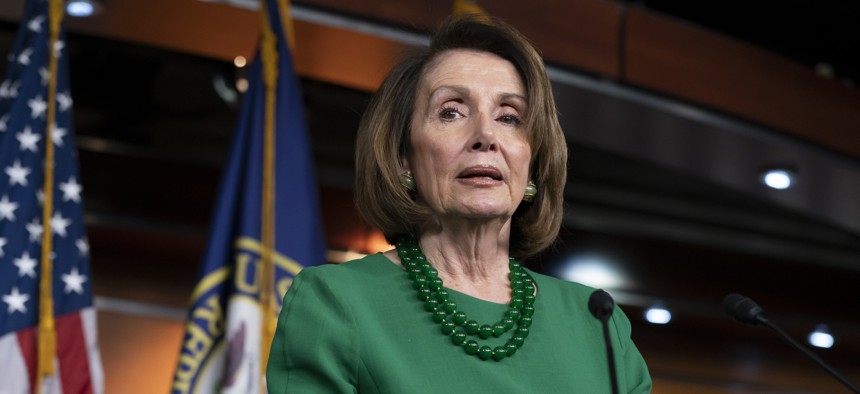“The American people have demanded action to combat the climate crisis, which threatens our public health, our economy, our national security and the whole of God’s creation,” Pelosi said in the statement. “Congresswoman Castor is a proven champion for public health and green infrastructure, who deeply understands the scope and seriousness of this threat.”
Castor, a longtime member of the Energy and Commerce Committee, has already promised to decline all campaign contributions from coal, oil, or gas companies. Pelosi has not yet described exactly what the committee will do, but House committees of this type can hold hearings, write reports, and bring public attention to political issues.
With its formation, Pelosi makes good on her 2018 campaign promise to revive a special climate-focused committee. (After Republicans took control of the House in 2010, they shuttered the last special climate committee, which Pelosi established in 2007.) But the new committee arrives to a delicate family situation in the Democratic Party. A number of activists on the party’s left have greeted the announcement with frustration. They had hoped (and protested) for a more ambitious Green New Deal committee. Such a panel, they imagined, might finally draft a unified Democratic climate policy, a plan to improve the lot of American workers while massively overhauling the economy to prepare for climate change.
“It’s a big disappointment,” says Stephen O’Hanlon, a spokesman for the Sunrise Movement, a Millennial-led organization that championed the Green New Deal plan. “The select committee on a Green New Deal was put together based on a hard look at what the science demands, and we were hopeful that Nancy Pelosi—who says she wants to take serious action on climate change—would be willing to come to the table for it.”
“We’ll have to see what the actual mandate of the committee is,” he adds.
The Climate Crisis Committee seems likely to get a much narrower mandate than activists envisioned for a Green New Deal committee. It will probably not be allowed to issue subpoenas, as a permanent standing House committee can, nor will it be able to draft legislation. Overall, it will be less powerful than the last House select climate committee, which had subpoena power but not legislative authority.
Castor had been rumored to be Pelosi’s pick to lead the committee since late December. She gets high marks from the League of Conservation Voters, indicating a solid environmental record.
But she has sometimes seemed ignorant of major disputes among climate activists. For instance, the Sunrise Movement initially sought to ban Green New Deal committee members from receiving donations of any kind from the fossil-fuel industry. When Castor heard that demand, she balked, claiming that the First Amendment made it impossible. Though she later walked back that comment, calling it “inartful”—and promised to forswear fossil-fuel donations herself—the episode suggested that she is unfamiliar with a constituency she will now have to entertain.
The demand should not have come as a shock: Fossil-fuel money has been a touchy subject for Democrats for years. As recently as August, climate activists warred with party moderates over whether it was appropriate to ban fossil-fuel donations for all Democrats, not just those on a climate-focused panel.
It’s not yet clear whether Castor will impose such a ban on all members of the Climate Crisis Committee. Her office did not respond to a request for comment.
The most interesting aspect of Friday’s news may be the new committee’s name. Al Gore used the phrase climate crisis often, and even Hillary Clinton sometimes deployed it during the 2016 election. It feels tedious to unfurl its message—Democrats believe climate change is an emergency, obviously—but perhaps the name is a reminder of how much energy politics have changed in the last decade. In 2007, when Democrats last established a select committee on climate change, they chose a name much more fitting for an era of high oil prices: The House Select Committee on Energy Independence and Global Warming. Now, the United States is just a few years off from exporting more energy than it imports. Thanks to fracking and renewable energy, we’ve solved the problem of American “energy independence.” Global warming, meanwhile, continues to get worse.







